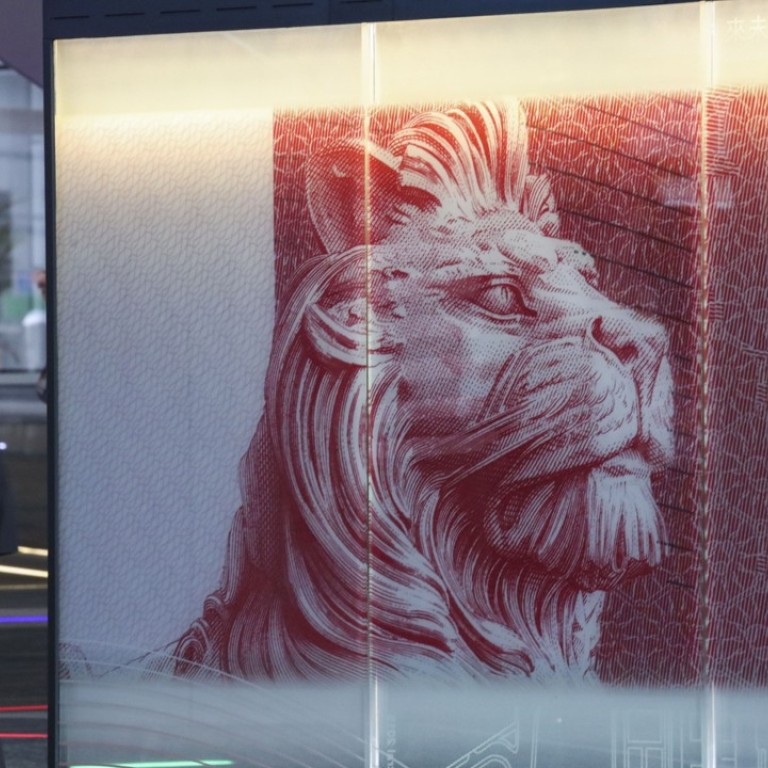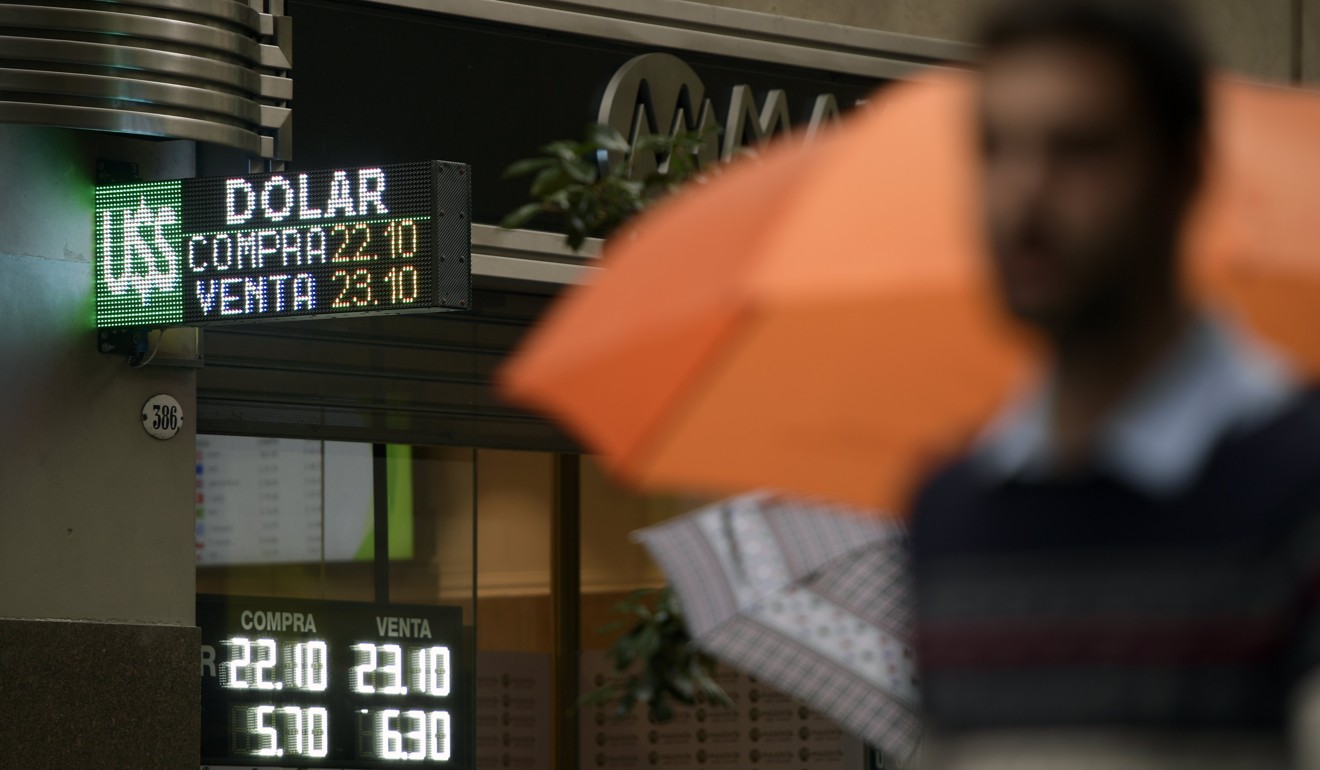
Spooked by Argentine peso rout, Hong Kong dollar slips towards weak end of US dollar trading band
HKMA expected to intervene once again as IPO activity related to Ping An Good Doctor listing fades and concerns about emerging market currencies rise
The Hong Kong dollar fell back towards the weak end of its trading band with the US dollar on Wednesday, because of concerns that a rout in emerging market currencies triggered by the turmoil in Argentina could spread to Asia as well.
Argentina on Tuesday sought aid from the International Monetary Fund via a US$30 billion credit line to avoid an economic crisis after its implementation of aggressive rate increases and foreign currency intervention failed to halt the plummeting peso. Higher US interest rates and a spike in the US dollar in recent weeks has helped drive a rout in emerging market currencies.
“Following the chaos in Argentina, investors should not rule out the emerging markets rout spilling over into the Asian region,” said Ken Cheung Kin Tai, senior Asian currency strategist at Mizuho Bank.
Late last month, the Hong Kong dollar had pulled away from the weak end of its trading band of 7.85 against the US dollar after subscriptions to Ping An Good Doctor’s US$1.1 billion initial public offering, the biggest listing in Hong Kong this year, had pushed up the Hong Kong interbank offered rate (Hibor), a gauge of commercial banks’ funding costs.

The Hibor spread with its Libor counterpart had been narrowing, making carry trades – selling low-yielding assets such as the Hong Kong dollar to buy US dollars that give higher returns – less lucrative.
Banking liquidity also tightened after the Hong Kong Monetary Authority bought HK$51 billion last month to defend the currency peg. The Hong Kong dollar was pegged at HK$7.80 to the US dollar in October 1983, with a trading band of 7.75 to 7.85 introduced in 2005. And the HKMA is obliged to intervene to prevent the currency from trading outside this range under this mechanism.
The local currency has been creeping back towards 7.8499 per US dollar from its one-month high of 7.8415, hit on April 23.
Analysts said they expected the Hong Kong dollar to touch 7.85 in the coming week or so, forcing the HKMA to intervene in the market once again, given a fragile stock market sentiment amid the US-China trade tensions, and as the effect of IPO fundraising activities fades.
Following the chaos in Argentina, investors should not rule out the emerging markets rout spilling over into the Asian region
The one month Hibor has dipped from its highs of 1.3 per cent to about 1.1 per cent, widening the Hong Kong dollar to US dollar interest rate gap, thus attracting carry trade activities that exert depreciation pressures once again.
The total net southbound inflows – mainland China investors trading Hong Kong shares – through the stock connect programmes into Hong Kong’s stock market stand at a mere 1.4 billion yuan (US$220 million) so far this month, dwarfed by northbound inflows, or buying of Chinese stocks by international investors, of 7.4 billion yuan.
“The HKMA reminds the public to manage risks prudently, to prepare for possible volatility in local interest rates and asset markets,” Norman Chan, the authority’s chief executive, said last week.

